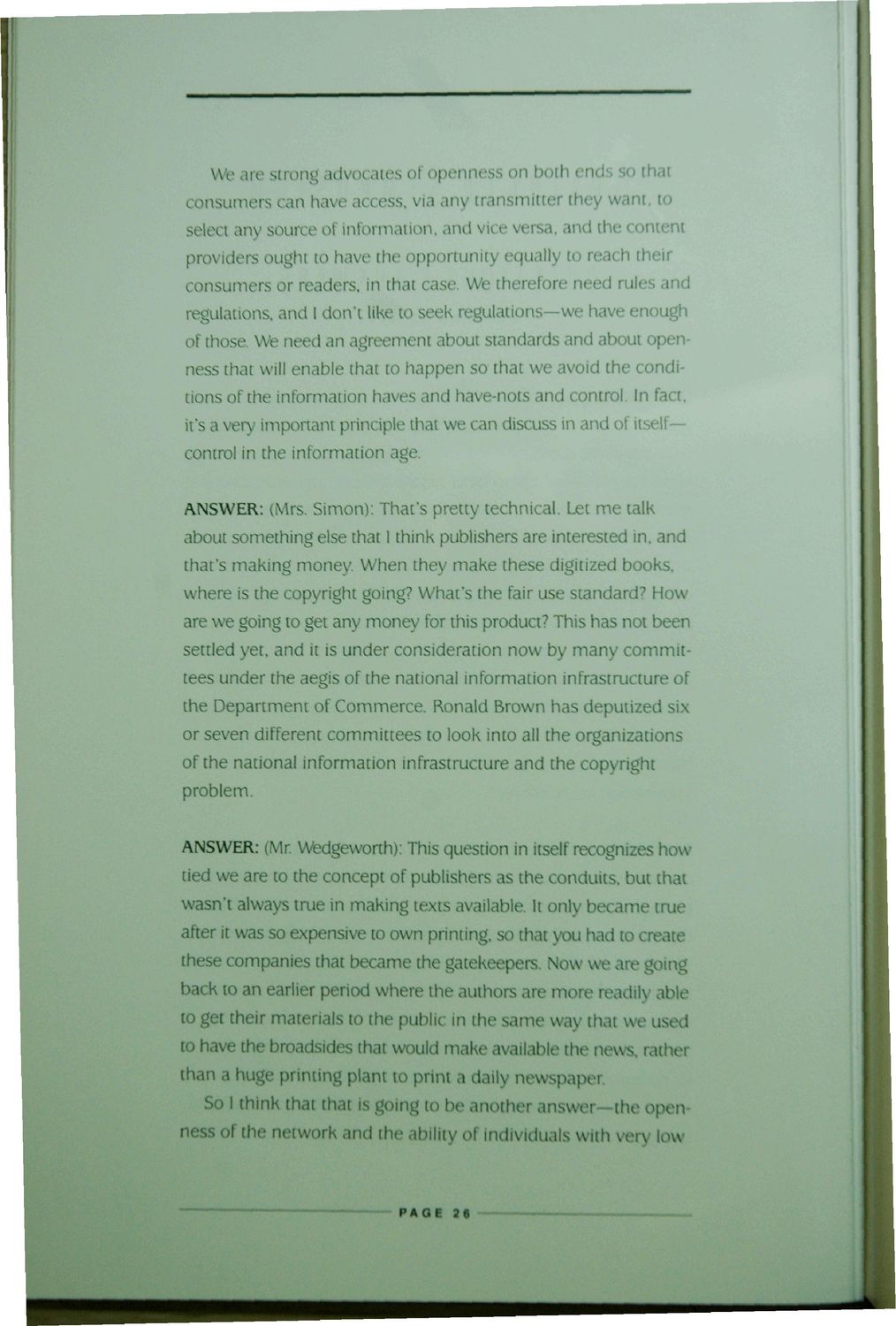| |
| |
Caption: Dedication - Grainger Engineering Library Symposium
This is a reduced-resolution page image for fast online browsing.

EXTRACTED TEXT FROM PAGE:
We are strong advocates of openness on both ends so that consumers can have access, via any transmitter they want, to select any source of information, and vice versa, and the content providers ought to have the opportunity equally to reach their consumers or readers, in that case. We therefore need rules and regulations, and I don't like to seek regulations—we have enough of those We need an agreement about standards and about openness that will enable that to happen so that we avoid the conditions of the information haves and have-nots and control. In fact, it's a very important principle that we can discuss in and of itself— control in the information age. ANSWER: (Mrs. Simon): That's pretty technical. Let me talk about something else that I think publishers are interested in, and that's making money. When they make these digitized books, where is the copyright going? What's the fair use standard? How are we going to get any money for this product? This has not been settled yet, and it is under consideration now by many committees under the aegis of the national information infrastructure of the Department of Commerce. Ronald Brown has deputized six or seven different committees to look into all the organizations of the national information infrastructure and the copyright problem. ANSWER: (Mr. Wsdgeworth): This question in itself recognizes how tied we are to the concept of publishers as the conduits, but that wasn't always true in making texts available It only became true after it was so expensive to own printing, so that you had to create these companies that became the gatekeepers. Now we are going back to an earlier period where the authors are more readily able to get their materials to the public in the same way that we used to have the broadsides that would make available the news, rather than a huge printing plant to print a daily newspaper. So I think that that is going to be another answer—the openness of the network and the ability of individuals with very low PAGE 28
| |